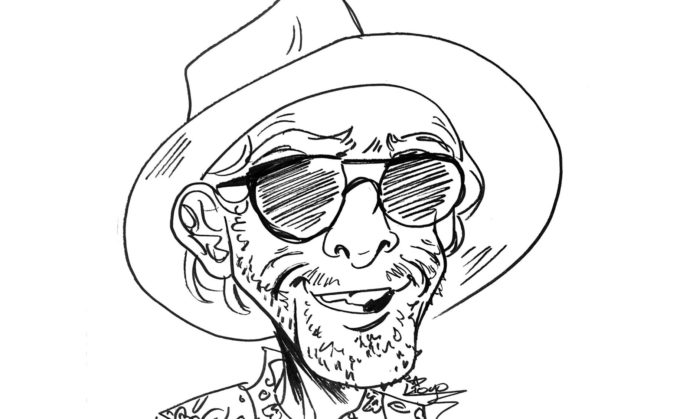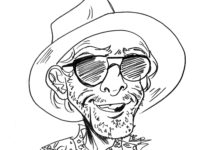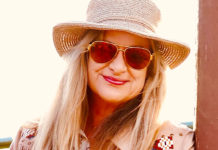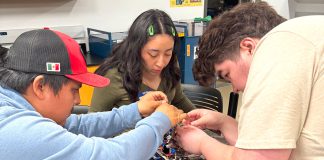Saturday afternoon around 4:30 I was 410 words into my column for this week when my cell phone rang. The choice to interrupt a train of thought while writing usually falls to the “let it ring and go to voicemail” protocol, but in this case the little window read Steven Wilson, and when your son calls from the Yellowstone Dutton Ranch in Montana that protocol is ignored and I quickly punched the little green Talk button.
Before I go on, I should explain to any readers who may know the television series “Yellowstone” that while Steven lives and works at a famed resort in the Bitterroot Valley of Montana many of the scenes for the series are filmed in and around where he works; in fact, he informed that filming had resumed in the corral area a few day before. (The Triple Creek Resort near Darby, Mont., is 26,000 acres, check out its website.)
We talked for about a minute with the usual beginnings of “how’s it going, how hot is it, etc.” when he asked me if I looked at the news lately, and when I replied in the negative, he said, “Guess who got shot today?” I asked who and he replied, in his humorous mocking voice, “Your boy Trump.” Now he is well aware I am not a fan of Mr. Trump but also knows I would not wish to see him murdered; though I am sure there are those who are sorry the bullet that grazed his right ear wasn’t four inches to the left.
When Steven informed that all he knew was that Mr. Trump was slightly wounded, a couple people in the crowd were wounded and the shooter was dead, I told him the news was saddening but not shocking. That was his reaction, as was it of those couple of his coworkers who discussed the event. A look at America’s recent history, at the experiences of my generation, seems to point to why shootings, even when the target is of national profile, no longer bring about a sense of shock.
In late 1962, I was 10 years old when the news was filled with what became known as the Cuban Missile Crisis, a stand-off between the two super powers capable of nuclear warfare only miles from the American mainland. Prior to this tense and fearful event, we had all been subjected to film footage of massive nuclear bomb explosions and their affect upon fully furnished homes, right down to mannequin families; and in one case caged sheep. Those images were shocking because we all realized that classroom bomb drills, where we all pushed our desks into a corner and hid beneath them so save us from harm, were a waste of time if a nuclear blast happened anywhere within range. And at that time military installations along our corridor of California ranged from presidios in both San Francisco and Monterey, Fort Ord, Hunter Liggett Military Reservation (now a fort) and Camp Roberts and were, according to rumor, prime targets for elimination by the Ruskies.
But as time went on, decades past, and with repeated news stories and documentaries and books, the great nuclear arms race gradually became just another part of our lives, and since 1962 the surface fear of nuclear war has become latent fear; we know the possibility exists but do not live fearful lives due to that possibility.
It is the same with the shock of Columbine. Since that shocking 1999 footage of students fleeing their campus, arms raised to prove they were weaponless, there have been 437 school shootings, media coverage of 118 of these shootings was widespread. The last shooting, as I write this, was 73 days ago. The shock we felt from Columbine’s 13 victims has paled as these horrendous events keep happening and the number of dead kids rises.
We live in a land where guns outnumber people, where shootings occur in a continual cycle of violence among all segments of society from ghettos to gated communities. We are informed that since 2001 there were 274,802 homicides in America and either nationally or regionally these deaths were reported and the total flood of numbers has dulled our shock at such happenings. When I was a lad, a man walked into a bar in Greenfield one night and in front of a couple witnesses shot a man sitting on a barstool, the man died. The story was locally big, the retelling went on for months. A couple years ago a man walked into a Greenfield restaurant full of diners and shot a man sitting at a table, that man died. Media coverage lasted only a few days as such events no longer register high in the weekly news cycle, let alone shock us with the brazen brutality of it all.
So, no, I was not shocked to hear that someone took aim at Mr. Trump, no matter what the shooter’s motive. As a nation we have had four sitting presidents assassinated; my generation has witnessed via media the killings of John Kennedy, Martin Luther King and Robert Kennedy and the wounding of President Reagan, attempts on the life of President Ford and the wounding of presidential candidate Geoge Wallace. In all these cases the assassins were either killed or captured; such shootings of high-profile political persons are suicide missions.
But in a nation where guns are plentiful and shootings a daily occurrence, it is hard to be shocked by this one shooting; even with the resultant deaths. And when I hear the pundits, both office holders and non-elected, say such things as “this is not who we are as a nation,” I must disagree; it is exactly who we are. And though this event will no doubt be just the thing that will put Mr. Trump in an office I do not think he is fit for; I will not be shocked when that happens come November.
Take care. Peace.














